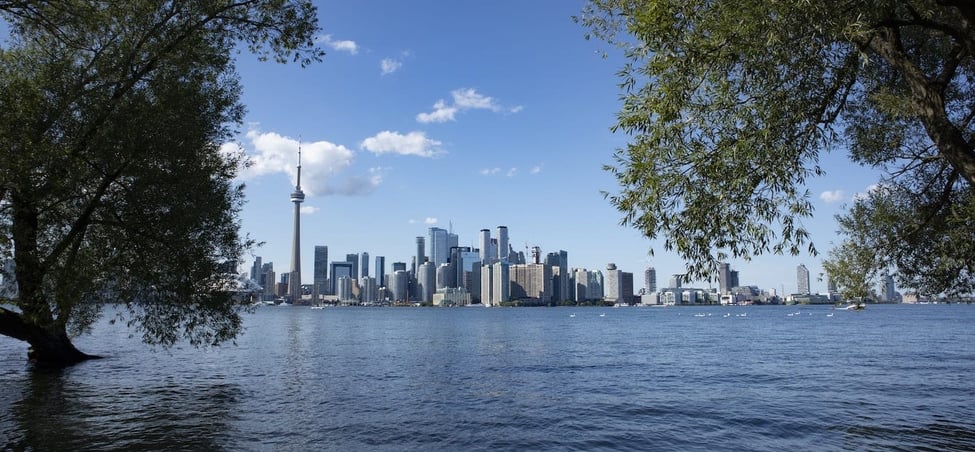Toronto is executing its plans to build a classy brand new line of ferry boats. A fresh report officially suggested replacing the city's outdated (but very nostalgic) ferry boats with fully electric versions.
The report, which was submitted by City employees within Parks, Forestry and Recreation (PFR), was reviewed by the General Government and Licensing Committee (GGLC) on January 14.
The scenic Toronto Island Park has been accessible by a ferry fleet of four main vessels and one historic vessel. It together carries more than 1.4 million people and 5,000 vehicles each year to the largest park in Toronto. While they are well-maintained and definitely beautiful, the boats are between 50 and 100 years old. This is far over the average lifespan for similar ferry vessels.
The report suggests a plan to replace four current primary ferries in a 15-year time. The initial strategy for replacing ferries suggested a hybrid diesel-electric system.

New Ferries Will Help Control Crowds, Green Emissions
The city people feel heartbroken to see the ferry boats go. However, it's required as it will help the environment and Toronto's expanding population. Accessing the island hasn't been easy since the pandemic outbreak. The journey to the island turned into a logistical problem during several summer weekends. The Toronto Islands goers had to stand in line of water taxis for hours because ferry services couldn't cope with the load.
The outbreak worsened the situation. It took a toll on everything. This included the capacity and schedule restrictions on ferries to the countless residents. The people were agitated with the transportation to and from the famous Toronto Islands at prime times.
Along with the increasing logistics, the move towards full electrification will also help support the city's TransformTO Net Zero Strategy. It will assist in accelerating climate actions in order to attain net zero greenhouse gas emissions by 2040. This particular initiative coincides with the goal of converting 20% of the city's fleet to emission-free in 2025, and 50% by 2030.
The mayor is in favour of the complete electrification of the new ferry fleet. It is the best option for the environment. Moreover, it will be an investment that will eventually reduce the cost to the city government. This is a good way to state how the people in the city are successful in implementing the city's TransformTO Net Zero strategy. It shall honour its commitment to increase climate change action. Also, it will attain net zero city-wide greenhouse gas emissions.
The complete electrification of the vessel fleet can cut 2800 tonnes of greenhouse gas (GHG) emissions per year. This is equivalent to taking 600 cars from the road each year. Additionally, eliminating diesel fumes that cause noise and air pollution will offer a better experience for tourists visiting Toronto Island.

New Fleet to Save $1.1 Million Annually
Further, the report suggests saving additional money allocated to the construction and design of support services needed. It will develop an entirely electric design for ferries and the necessary shore-side infrastructure. The change, after the replacement of the entire fleet, could result in annual savings of around $1.1 million, according to the report. The expected payback for full electrification is within 20 years.
According to the announcement made in the news media, several factors support the need to make the first step towards fully electric ferries. For instance, it will have to consider the costs for both types of vessels with its fluctuations in the industry, new technologies available as well as fleet replacement plans used in other jurisdictions. Moreover, it will also involve long-term savings in operation (fuel cost savings particularly).
While the team has not yet determined the further estimates of cost, they will consider it as the project progresses. However, the current estimates for final designs vary between $23-$25 million for each vessel. The cost of a complete electric vessel is similar to a hybrid vessel, and it will offer more capacity for passengers.
But, given the obvious benefits that the new fleet can provide Toronto tourists and residents, there's likely to be not much resistance to taking the all-electric train across the island, and even into the future.
To get the latest news, property buying or selling tips and much more, check out our full blog.

